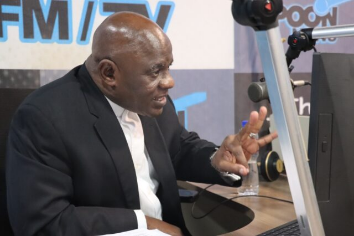Cllr. Kabinah M. Ja’neh, a former Associate Justice and once a staunch supporter of President Joseph Boakai, has delivered a scathing critique of the current administration in Liberia. Ja’neh expressed profound disappointment in President Boakai’s leadership, citing a concerning disregard for the rule of law and a decline in the overall fabric of Liberian society. He pointed to a series of troubling incidents, including alleged illegal actions by the Inspector General of Police, as evidence of a government that does not respect legal processes. These actions, according to Ja’neh, give Liberians ample reason to reconsider their support for the ruling Unity Party.
Ja’neh’s disappointment stems from what he perceives as a stark contrast between the promises made by the Unity Party and the reality of their governance. He emphasized the erosion of fundamental rights, particularly the right to assemble and protest, which he argues is being suppressed by the current administration. This, he believes, contradicts the very principles of the rule of law that the Unity Party claimed to champion. The alleged kidnapping of a prisoner by the Inspector General of Police, acting on executive orders, further underscores Ja’neh’s concerns about the arbitrary exercise of power and the disregard for judicial processes. He questioned the legality of the national budget, suggesting potential illegalities and raising concerns about the overall financial management of the country.
The former Associate Justice’s criticism extends beyond specific incidents to encompass a broader critique of the direction in which Liberia is heading under President Boakai’s leadership. He expressed deep worry about the “signs and symptoms” he observes, which indicate a departure from the path of justice and adherence to the rule of law. This deviation, he argues, presents a grave threat to the nation’s future. He stressed the paramount importance of law as the only true protector of citizens, regardless of personal affiliations or preferences. The perceived disregard for this fundamental principle, according to Ja’neh, creates a climate of fear and uncertainty, undermining the very foundations of a just and stable society.
Ja’neh’s disillusionment is particularly striking given his previous support for President Boakai. He stated unequivocally that he would not support the President for a second term, emphasizing that he only offers support to those who actively seek it. His refusal to endorse Boakai for reelection underscores the depth of his disappointment and his conviction that the current administration has failed to live up to its promises. While acknowledging his influence within the Muslim community, Ja’neh refrained from explicitly directing their political leanings, stating that the community would make its own decision. However, he hinted that if they sought his counsel, he would offer a clear course of action.
The former Justice underscored the crucial role of the right to protest, highlighting its constitutional basis and condemning the government’s alleged attempts to suppress it. He pointed out the irony of an administration that campaigned on the platform of upholding the rule of law now seemingly violating it by obstructing peaceful protests. The alleged actions of the Inspector General of Police, whom Ja’neh labeled a “kidnapper,” further exemplify this contradiction, highlighting the apparent disregard for legal procedures and due process.
Ja’neh’s pronouncements represent a significant challenge to President Boakai’s authority and leadership. His criticisms, coming from a former supporter and a respected figure within the legal community, carry considerable weight and are likely to resonate with many Liberians who share his concerns. The allegations of illegal activities within the police force and the perceived disregard for the rule of law raise serious questions about the integrity and legitimacy of the current administration. Ja’neh’s vocal dissent signifies growing unease and dissatisfaction with the direction the country is taking under President Boakai, potentially foreshadowing a turbulent political landscape in the years to come.














